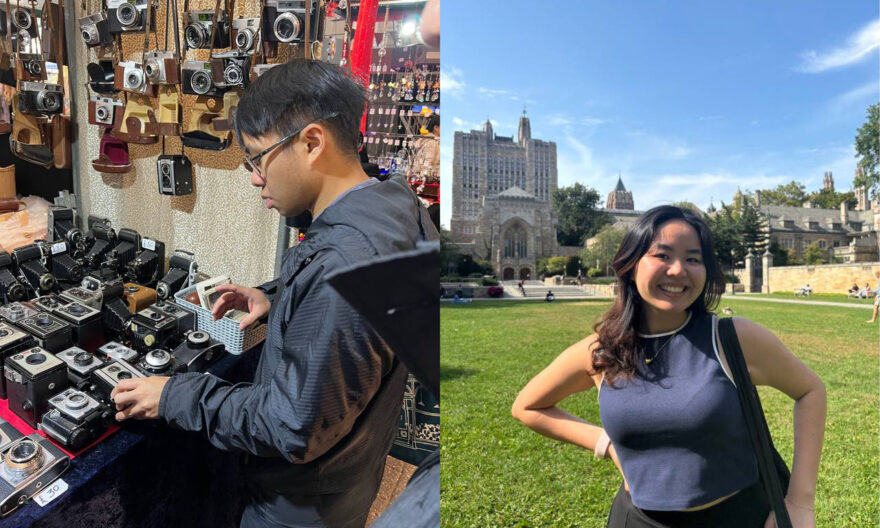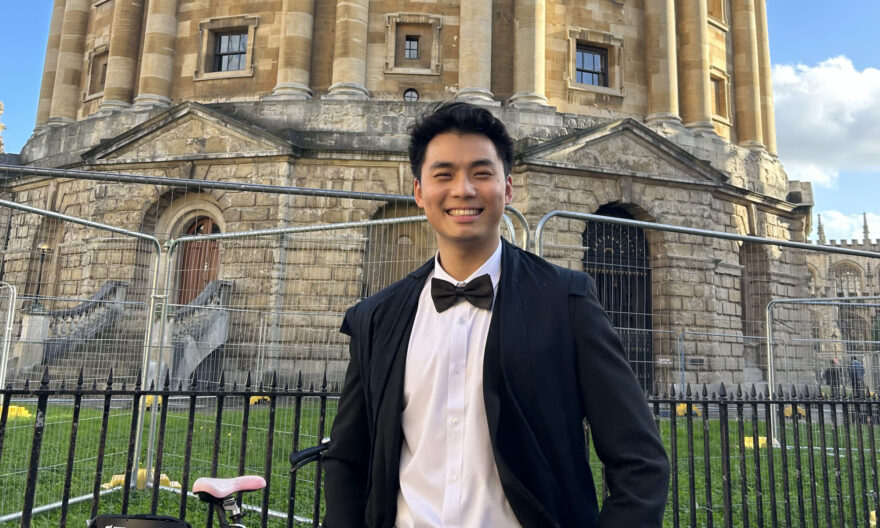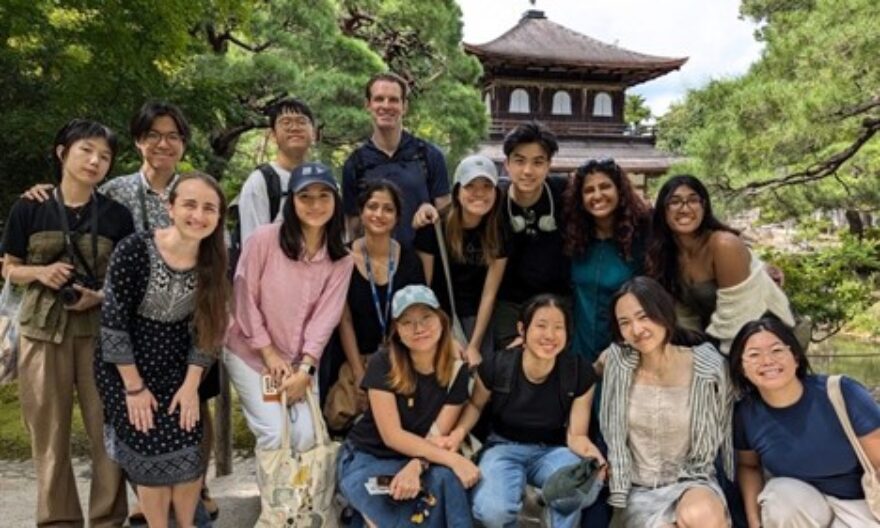Yale-NUS students deepen their learning and professional development through special graduate programmes
Pathway with Duke-NUS Medical School and concurrent degree programme with Lee Kuan Yew School of Public Policy
Students from Yale-NUS College take a diverse array of life paths after graduation, such as starting their professional careers or furthering their studies in graduate school. Some students began preparing for their graduate studies during their undergraduate years, through Yale-NUS’ special partnership and concurrent degree programmes.
Two such students are Tony Tang (Class of 2025), who is on the Yale-NUS & Duke-NUS Liberal Arts and Medicine Pathway, and Nikita Taratorin (Class of 2023), who is on the Concurrent Degree Programme with the Lee Kuan Yew School of Public Policy (LKYSPP). We catch up with them to see how the College has prepared them for their graduate studies and how life at graduate school is different from Yale-NUS.
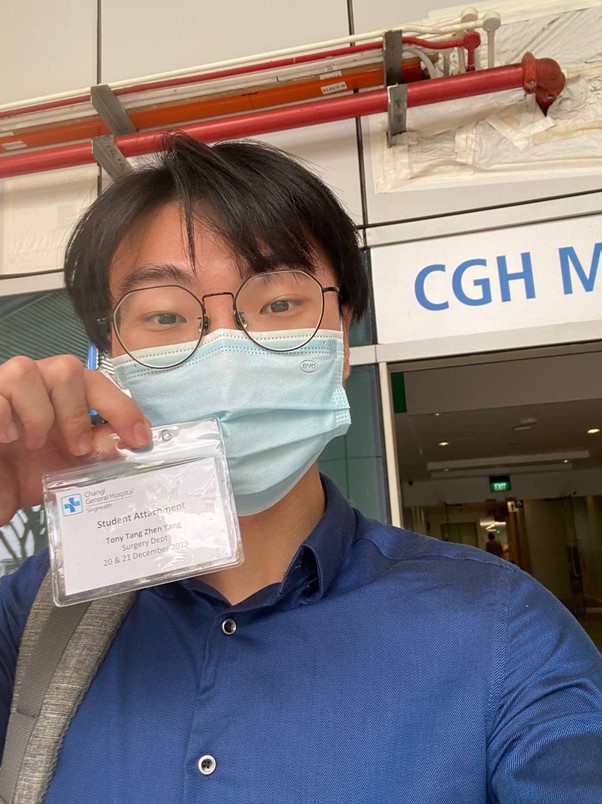 Tony Tang (Class of 2025) at his medical at Changi General Hospital. Image provided by Tony.
Tony Tang (Class of 2025) at his medical at Changi General Hospital. Image provided by Tony.
Prior to joining Yale-NUS, Tony was a science student who wanted to pursue medicine. When he came across the liberal arts and medicine pathway, he realised that the programme would give him the opportunity to explore his diverse range of academic interests. “The Pathway allowed me to dabble a little more in Literature, which was my favourite subject in Junior College, while giving me more time to mull over whether I really wanted to do medicine,” he shared.
Students on the Yale-NUS & Duke-NUS Liberal Arts and Medicine Pathway attend four years of undergraduate study at Yale-NUS College before immediately continuing to study for a Doctor of Medicine (MD) degree at Duke-NUS Medical School. For the most part, the students’ undergraduate experience at Yale-NUS are no different than their peers. “I have to maintain good grades and get a good score on the Medical College Admission Test (MCAT), a six-hour multiple choice question test on sciences and some sociology, psychology, and critical analyses,” Tony explained.
While studying for the MCAT, Tony was glad when concepts from his Yale-NUS courses showed up on the test. “I laughed when I saw Weber and Durkheim’s names popping up for some of the sociology questions, recognising them from my Modern Social Thought course,” he said. Moreover, he also found out that the Yale-NUS Library has MCAT textbooks that he could borrow, helping his preparation greatly. Besides the MCAT, he also has regular meetings with a doctor who is his assigned mentor, and had to complete an introductory module by Duke-NUS.
As he is about to enter his final year at Yale-NUS, Tony reflects on how different life at Duke-NUS will be. While he is used to the more discussive, thesis-writing, seminar-style workload in his undergraduate studies, he shared that, “I think that science focus at the medical school will involve a lot more textbook-facts than abstract thinking, at least for the first year”. “Clinical postings and research there will also be quite different from doing internships,” he added.
Overall, he is thankful for the extra four years of education that allowed him to explore his academic and personal interests without being confined to medical books or work attachments. “I think they will really value-add to how one thinks and acts in Duke-NUS afterwards,” he said.
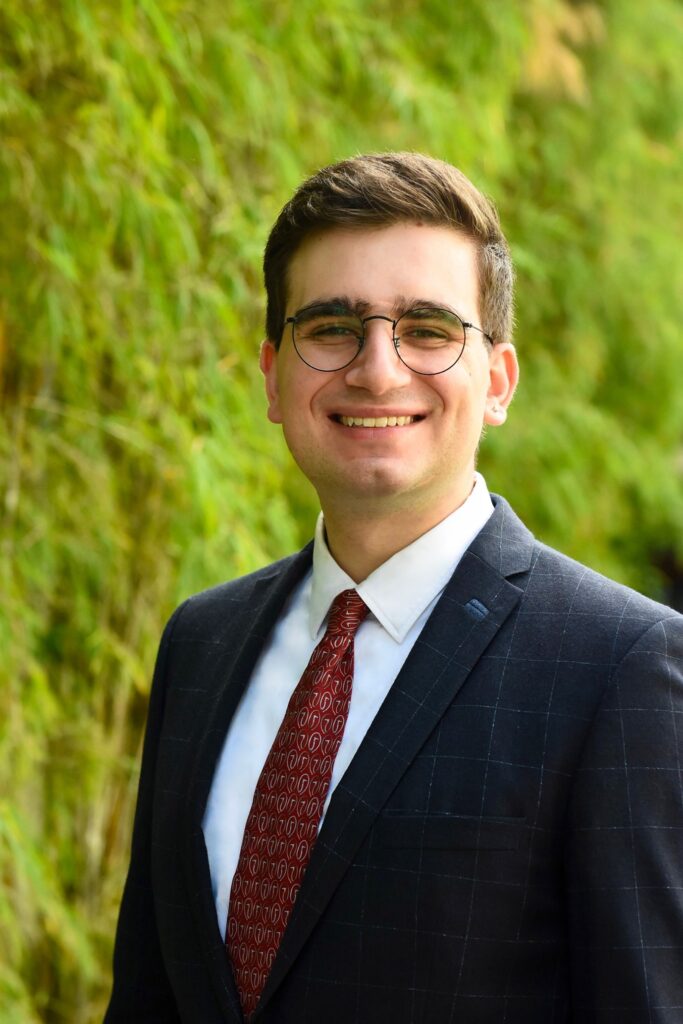 Nikita Taratorin (Class of 2023) is in the Concurrent Degree Programme with Lee Kuan Yew School of Public Policy. Image provided by Nikita.
Nikita Taratorin (Class of 2023) is in the Concurrent Degree Programme with Lee Kuan Yew School of Public Policy. Image provided by Nikita.
A Global Affairs major at Yale-NUS with a keen interest in developing a specialised skill set for work in the field of public policy, the Concurrent Degree Programme (CDP) with LKYSPP was the natural choice for Nikita. Students apply for this concurrent degree programme (CDP) in their third year at Yale-NUS. Upon being accepted to the CDP, they simultaneously take classes from both schools in their fourth year, graduating with a bachelor’s degree from Yale-NUS, before finishing their master’s degree at LKYSPP in their fifth and final year.
Now in his fifth year of studies, Nikita looks back on the journey that led him there. During his undergraduate years, Nikita worked closely with the Centre for Professional & International Experience (CIPE) to prepare his application to the programme. “Yale-NUS’ academic programme provided a very strong foundation for my application, especially since the Common Curriculum and classes I took were crucial in the development of my writing, critical thinking, and quantitative/qualitative research skills,” he shared.
“LKYSPP is a professional graduate school, which in my opinion, differs greatly from typical graduate school experience,” Nikita said, sharing about his experiences with the programme.
“The focus of the academics for me now is to develop a specialised skill set that enables me to deeply analyse emergent policy challenges and think about the most plausible solutions for them,” he added. In lieu of a graduate thesis, he instead does a policy analysis exercise with a real client to solve their policy challenges.
Nikita is grateful for the wide range of additional events and opportunities that LKYSPP has given him. “The school regularly hosts large conferences, guest lectures, workshops, and speakers who provide a lot of insight on how policy challenges are addressed in real life,” he said. “I’ve also gotten many opportunities to participate in international conferences, networking sessions, and other functions to maximise my exposure to the field,” he added.
Read also about our students’ experiences in other CDP and Special Programmes in our previous stories (1, 2).

